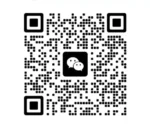Recently, I took a student who successfully passed Qualcomm The virtual onsite, organize the whole set of processes and question types, to give friends who are preparing to do a reference! The background of this student is actually very common: CS freshman, favoring software business development, brushing a lot of questions, weak in the bottom layer, no confidence in the system post at all. At the beginning, he came to Programhelp with the mentality of trying: "I don't even know the virtual function of C++, can I still face the system post?"
We did a quick assessment of his CV and found that there was a lot of potential: projects, code implementation, learning ability - all that was missing was the ability to "speak clearly" and "give good answers".

Delivery method
He went directly to the official website channel, there is no cooling-off period, and the process for multiple positions can be advanced in parallel. He boldly applied for a few positions that said "1 - 3 years of experience", and actually got interview invitations -- we have confirmed before that Qualcomm is famously friendly to new grads. We assisted him to optimize his resume, focusing on C++ and Python skills, especially the keywords mentioned repeatedly in JD, such as "multi-threaded programming", "real-time system", etc., in his resume. In particular, the keywords mentioned repeatedly in JD, such as "multi-threaded programming", "real-time system", etc., were covered accurately in the resume.
HR Initial Phone Screening
The first round was a phone call from HR, about 10 minutes, to confirm the job match and the candidate's intention. We simulated the common questions the day before and prepared in advance what to say about relocation, visa support and other key questions to help him get through.
Technical telepresence (VO)
This stage is the main battlefield for Programhelp. We provide remote and seamless online support + real-time voice prompts, together with screen sharing, to ensure that TAs maintain efficient output during the question answering process.
The main problems encountered with electric surfaces include:
Project Deep DiveThe other party directly asked us to open GitHub on the spot and talk about the logic of the code in the project in one paragraph. When we mocked the project, we did some key preparation, which commits should be clearly stated, and which function logic should be able to tell the tradeoff.
Underlying Conceptual ExaminationThe first part is the shortcoming of the TA at the beginning, but we have organized the high frequency knowledge card + key knowledge string in advance to help him "from the point of line". This part of the TA at the beginning of the short board, but we have organized a systematic post of high-frequency knowledge cards + key knowledge crosstalk, to help him "from point to line".
Codepad real-time codingThe interviewer said, "I'm not sure if you're going to be able to do this, but I'm sure you're going to be able to do it, so I'm sure you're going to be able to do it, so I'm sure you're going to be able to do it, so I'm sure you're going to be able to do it, so I'm sure you're going to be able to do it. The interviewer recognized it on the spot.
Onsite Super Day (3-4 rounds)
The TA was a bit tense at this stage, so we guided him through the whole process with the program + audio without any traces, so that he could stabilize his rhythm.
Round 1: System Design Questions (OS Direction)
The interviewer asked about thread scheduling and mutex application scenarios, the TA was a bit stuck at the beginning, so we prompted him to start from "user state / kernel state", which successfully stabilized the scene. We also added "the difference between mutex and semaphore", which instantly brought the atmosphere back.
Round 2: C++ Deep Questions
queried volatile The TA was once stuck when the keyword was used. Fortunately, we had simulated the "memory visibility related problems" before the interview, and the voice prompted "compiler optimization & memory reorder", the TA successfully started and gave a multi-threaded example, which solved the crisis! The TA was able to solve the crisis by giving an example of multi-threading!
Round 3: Algorithm Design + OOD Mixed Questions
A combination of chained table and thread synchronization code was tested. These questions require high boundary handling and abstraction skills, so we prepared a Qualcomm-style OOD template in advance and guided them to make a clear hierarchical structure with interface classes + virtual functions during the question answering process.
Round 4: Behavioral + Benefits Presentation
HR asked the standard questions: "experience in resolving differences", "most fulfilling project", we had simulated three times before the interview, and he directly and fluently told the story of his GitHub project and the promotion of code review in his internship. He also mentioned his work visa and willingness to relocate, which Qualcomm clearly supported!
FAQ|Qualcomm System General VO Frequently Asked Questions
Q1: Is Qualcomm's systems position new grad friendly? Do you need work experience?
A: Very friendly! We've had a number of students apply for jobs labeled "1-3 years of experience" and still received interview invitations. The point is that you can show the underlying fundamentals, such as C++, Python, operating system knowledge, not "whether there is a title".
Q2: What basics will VO test? What are the key points?
A: We summarize the high-frequency test points including:
C++: inheritance, polymorphism, virtual functions, pointer management, RAII, volatile
Operating systems: threads vs processes, mutex, semaphores, scheduling algorithms
Data structures: chained tables, trees, stack teams, hash tables
Project Code Talk: Github code walkthrough + design ideas
A participant was asked two rounds of volatile in a row. Don't underestimate the weight of basic concepts!
Q3: What platform will VO do the questions on? Do I need to turn on the camera?
A: The store commonly uses codepad (a Google Docs-like collaborative editor), which doesn't require a camera; super day may be Zoom, and some groups will ask to share the screen to write code, but not monitor the environment.
Q4: What specific assistance does Programhelp provide?
A: We can do more than just talk about the problems:
Accurate prediction of high-frequency questions for systematic posts to help you refine your personal strengths expression;
GitHub project explanation accompaniment + codepad practice simulation;
Provide untethered voice connectivity on the day of the interview, with real-time pacing reminders and answer structure guidance;
Follow up after the interview to summarize and review the shaky answers and prepare for the next round.
Q5:If I have a poor foundation, can I still prepare for VO?
A: Of course! We have done all-in-one C++ + OS + Structured Expression training for students who have only brushed up on algorithmic problems, and they can be ready for interviews in as little as 10 days, and we have had several successful cases.
You don't really have to be alone on your way to the bank.
If you want to hit the Qualcomm system post, too.
Might as well come and get it. Programhelp Do an assessment!
✅ Help you determine job match
✅ Tells you which pieces you should focus on preparing for
✅ Provide mock + online auxiliary services to ensure stable output


